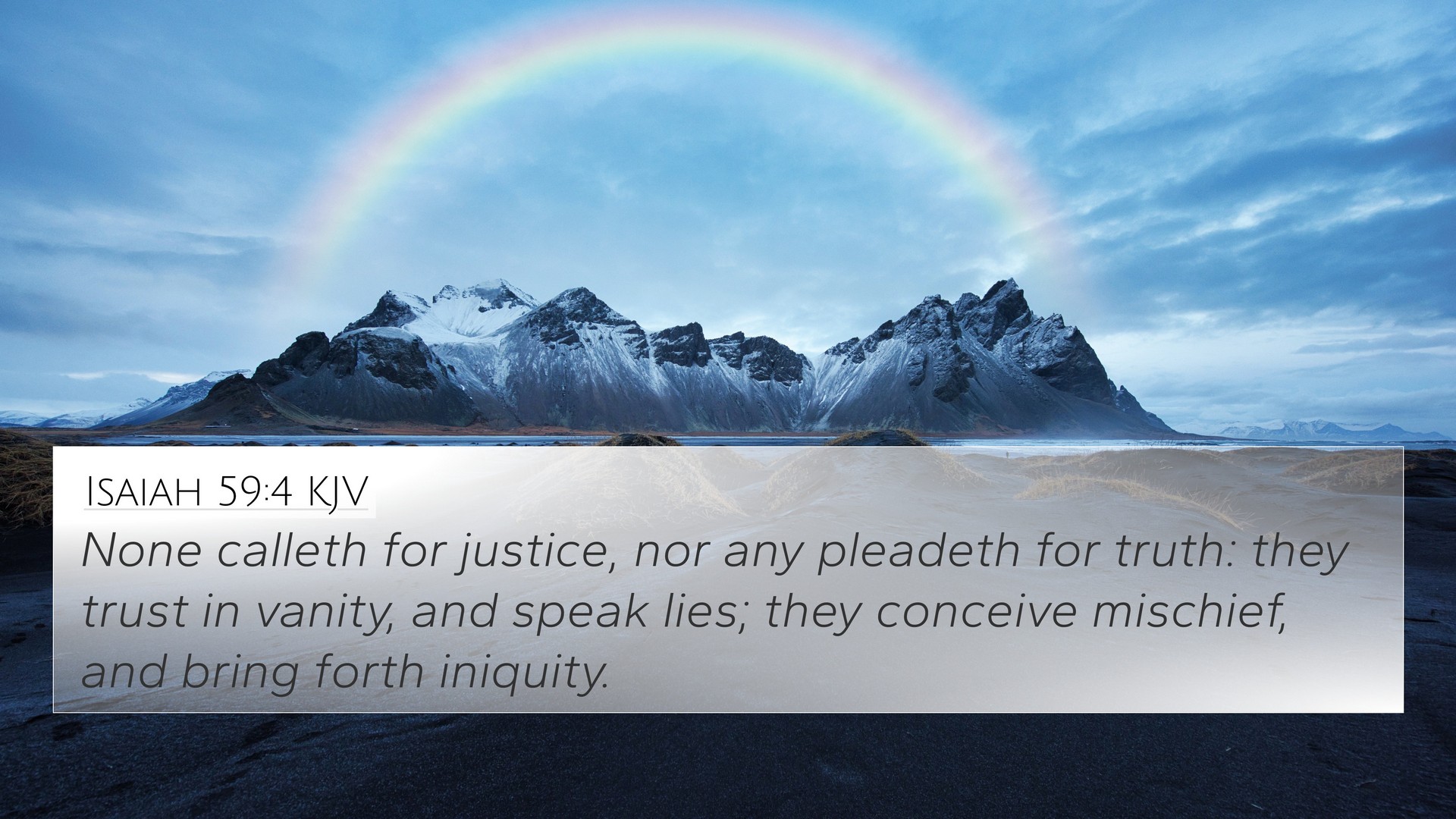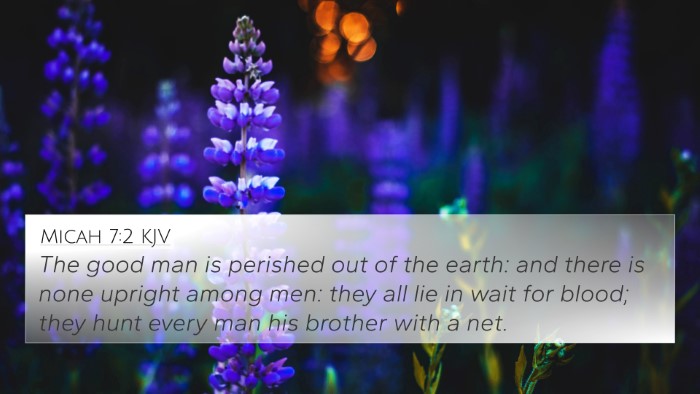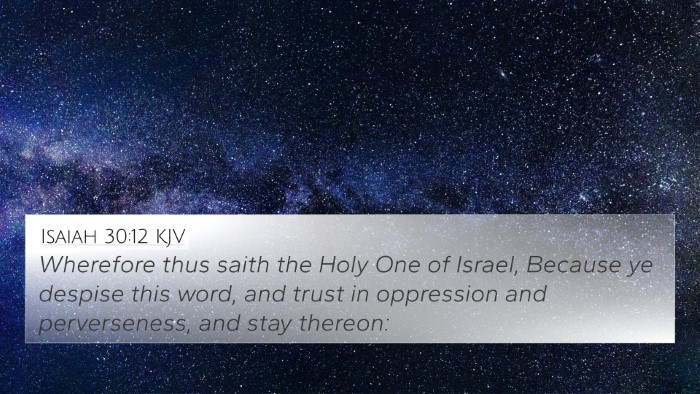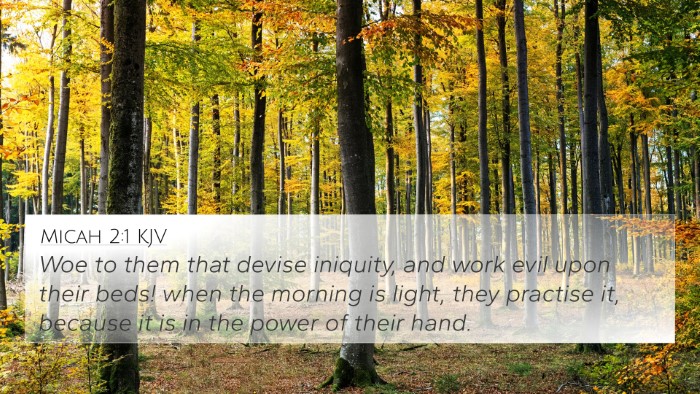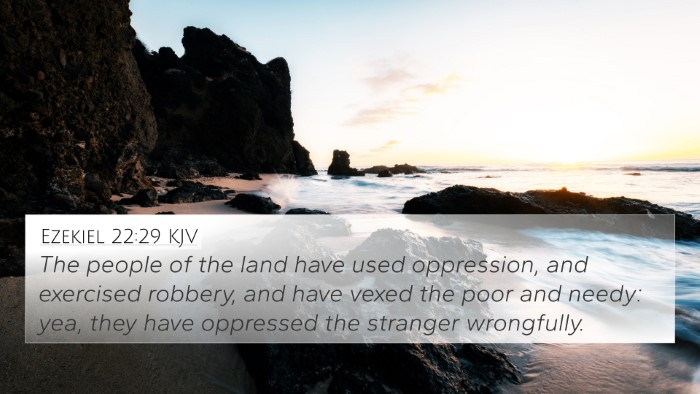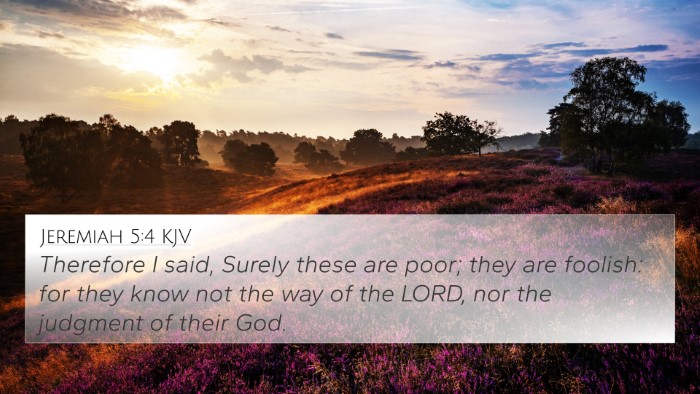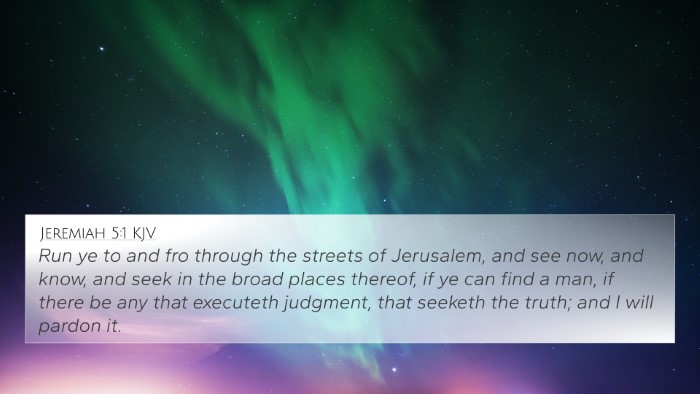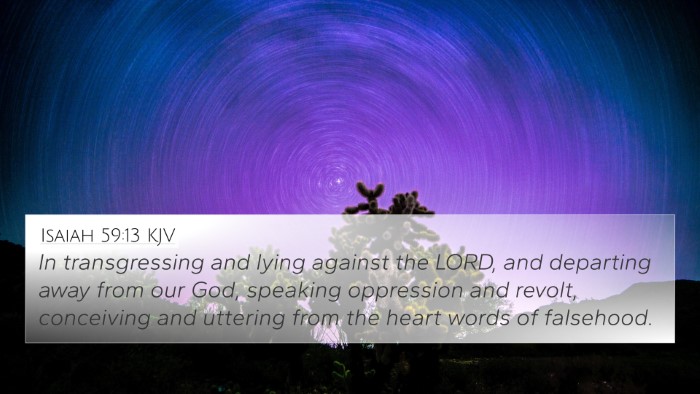Understanding Isaiah 59:4
Verse: Isaiah 59:4 - "None calleth for justice, nor any pleadeth for truth: they trust in vanity, and speak lies; they conceive mischief, and bring forth iniquity."
Summary of Meaning
Isaiah 59:4 addresses the moral decay within society, highlighting a lack of justice and truth. This verse criticizes the people's trust in emptiness and their propensity to lie. The imagery of bringing forth iniquity indicates that their actions are a direct result of their deceptive and unjust nature.
Insights from Commentaries
Matthew Henry's Commentary
According to Matthew Henry, this verse reflects a profound desolation concerning justice. The absence of cries for justice implies a collective indifference to moral law. He emphasizes that society has abandoned truth for lies and deception, leading to spiritual and social decay.
Albert Barnes' Notes
Barnes points out the significance of "trusting in vanity" as a critique of false hope. He explains that the people have turned away from the truth and have engaged in deceit, leading them into a cycle of iniquity. Barnes underscores the importance of justice as a pillar of righteous living and warns against the fruitlessness of their actions.
Adam Clarke's Commentary
Clarke elaborates on the concept of pleading for truth, which was essential in the Hebrew culture. He notes that the failure to advocate for justice reveals a deeper spiritual blindness. Clarke indicates that the consequences of such behavior bring about desolation, as the community becomes entrenched in immorality.
Thematic Connections
Isaiah 59:4 presents several themes common throughout the Scriptures, including:
Cross-References and Their Significance
The following are vital cross-references that illuminate the meaning of Isaiah 59:4:
- Deuteronomy 16:20 - "Justice, justice shall you pursue..." - This verse underscores the Biblical mandate for justice.
- Micah 6:8 - "What doth the Lord require of thee, but to do justly..." - Reflects God's expectations for His people regarding justice and mercy.
- Proverbs 12:22 - "Lying lips are an abomination to the Lord..." - Highlights the importance of truth and its association with righteousness.
- Romans 6:23 - "For the wages of sin is death..." - Connects iniquity with spiritual death, emphasizing the consequence of sin.
- Galatians 6:7 - "For whatever a man sows, that will he also reap..." - Reiterates the law of sowing and reaping, pertinent to actions stemming from deceit.
- Psalm 101:7 - "No one who practices deceit shall dwell in my house..." - Affirms the unacceptability of deceit in God's presence.
- Proverbs 14:34 - "Righteousness exalts a nation, but sin is a reproach to any people." - Emphasizes the societal consequences of collective morality.
- Isaiah 5:20 - "Woe to those who call evil good and good evil..." - Warns against moral inversion, similar to the themes in Isaiah 59.
- Jeremiah 9:6 - "Your dwelling place is in the midst of deceit; through deceit they refuse to know Me..." - A parallel to the spiritual condition addressed in Isaiah 59:4.
- Ephesians 4:15 - "Speaking the truth in love..." - Encourages a culture of truthfulness within the community of believers.
Concluding Thoughts
Isaiah 59:4 serves as a powerful reminder of the necessity for justice and truth in society. The consequences of forsaking these values are dire, as shown through various cross-references throughout Scripture. Understanding this verse in relation to others highlights the thematic connections found in God's Word, enriching our study and personal application.
Tools for Bible Cross-Referencing
Utilizing a Bible concordance or a Bible cross-reference guide can help deepen your understanding of the connections between verses like Isaiah 59:4 and other Biblical texts. Developing skills in cross-referencing encourages a comprehensive approach to Scripture, allowing believers to grasp the intricate web of themes that run throughout the Bible.
